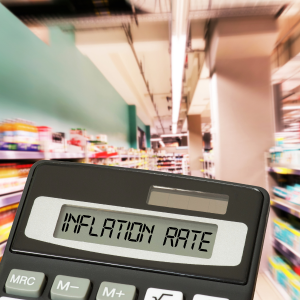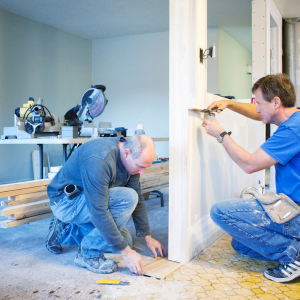
Understanding the Virginia Real Estate Market: Key Insights for Sellers
Getting a handle on Virginia’s real estate market is key for anyone looking to sell with confidence and get the best return. In Virginia, the housing market shifts with the seasons, and the timing of your sale can make a real difference in how fast your home moves—and for how much.
Spring is usually a great time to sell a house. There are more buyers and more competition, which usually means that deals go up. A lot of families want to move before school starts again, which is good for buyers whose homes are in good shape.
On the flip side, winter can slow things down. Cold weather and the holidays pull focus away from buying, and fewer people are house-hunting. Regional variables like job growth, interest rates, and housing supply also play a big part across areas like Northern Virginia, Richmond, and Hampton Roads.
If you know about these trends, you can list your home at the best time, when demand is highest. This will help you sell faster and for more money.
Factors Influencing Home Prices in Virginia
Home prices in Virginia aren’t set in stone—they shift based on a mix of factors that can impact when and how much you sell for. One of the big ones is the state’s seasonal climate; warmer spring weather typically draws in more buyers, which can push prices upward.
Additionally, economic issues are important. Buyers’ ability to afford a home is affected by interest rates and job markets, which in turn impacts what they hope to give. School schedules are another factor; families often plan moves around summer break, which makes the market more competitive and raises home prices.
Also, you can’t forget about supply and demand in neighborhood markets. There are more bidding fights when there are fewer homes for sale, which is good for sellers. Being close to cities like Washington, D.C., Richmond, or Virginia Beach can also raise the value of your home because it makes it easier to get to and there are lots of things to do nearby.
Tuning in to these elements helps sellers time the market and price their homes for the best possible outcome, especially when exploring Effective Strategies For Selling A Virginia Home With Title Complications.
The Impact of Economic Conditions on Real Estate Sales in Virginia

The economy plays a major role in how—and how quickly—homes sell in Virginia. When times are good, people feel more financially secure, which usually means more buyers in the market and better sale prices for sellers.
But buyer confidence drops when the business is having a bad time, like during a recession or a time of high inflation. That often means there are fewer offers, and it takes longer for homes to sell. Interest rates also play a role. Lower rates make mortgages more affordable, which brings more sellers into the market and makes it more competitive.
Employment rates have a similar effect. The more people working, the more likely they are to buy homes. Sellers who want to make the most of their sale should stay on top of economic indicators like job growth and borrowing costs to anticipate changes in buyer behavior across the state.
Assessing Market Demand and Supply Dynamics When Planning to Sell
If you’re planning to sell your home in Virginia, you need to understand how supply and demand affect the timing. The best time to sell is usually when buyer demand is high and housing inventory is low.
Many buyers are looking to close before summer break, so this usually happens in the spring. When there are fewer ads and more buyers, sales tend to go faster and prices are higher.
Don’t forget about local effects, though. Changes in mortgage interest rates, the economy in the area, and neighborhood trends are also important. Keeping an eye on these factors can help you time your post for when there are the most buyers and the fewest homes available.
Look at past data on home sales and current market conditions to get a sense of what buyers are doing—and when they’re most ready to make a move.
Timing the Sale of Your House in Virginia: Seasonal Trends and Market Cycles
Selling your house in Virginia isn’t just about listing it—it’s about listing it at the right time. For most areas, spring—March through May—is when things really heat up.
Why? The weather is pleasant, days are longer, and more people are actively browsing homes. These factors make for stronger offers and more competition. It’s also a sweet spot for families trying to relocate before school is out.
Summer can still work well, though extreme heat may keep some buyers home. Fall slows slightly, but September often carries the momentum from summer. Winter, with its cold and holiday distractions, typically sees less interest overall.
Understanding how each season impacts buyer behavior allows you to strategically time your listing and sell your house fast in Virginia by capitalizing on the most active months in the real estate market.
How to Prepare Your Virginia Home for Sale: Essential Tips and Tricks
If you’re looking to sell during Virginia’s peak season, prep is everything. Start with curb appeal—tidy the yard, trim shrubs, and refresh the paint if needed. A clean, inviting exterior sets the tone for everything that follows.
Clear out the room inside and get rid of personal items so buyers can picture themselves living there. Walls and decorations in neutral colors can help your home look better to more people. Things like loose knobs, taps that leak, and doors that creak are all signs that your home is ready to be moved into.
Staging also makes a difference. Highlight your home’s strengths—big windows, open spaces, scenic views—by arranging furniture and decor thoughtfully. Deep-clean all areas, especially kitchens and baths, which buyers often scrutinize most.
And before you list, consider a pre-inspection. It’s a smart way to catch surprises early and keep negotiations smooth.
Renovations and Upgrades That Increase Your Home’s Value Before Selling

Smart renovations can pay off big when you’re gearing up to sell in Virginia. Focus first on curb appeal upgrades—refresh landscaping, repaint the exterior, or swap out that old front door for something modern.
Inside, think kitchens and baths. Update counters, replace old appliances, and add sleek fixtures to give your home a fresh, move-in-ready feel. Flooring matters too—refinished hardwood or quality vinyl planks can instantly elevate your space.
Another smart move is to make energy use more efficient. To get buyers who want to save money on utilities, insulate or replace your windows. And buyers who are good with technology will like extras like protection systems or smart thermostats.
These targeted improvements not only attract more buyers, they help position your home as a top pick during Virginia’s most competitive selling months.
Staging Your Home to Attract Buyers: Best Practices for Virginian Sellers
When it comes to staging your home in Virginia, think like a buyer. First impressions count, so start outside—clean up the yard and add seasonal flowers to make your home pop, especially during spring when competition peaks.
Inside, keep things clean and neutral. Pack away personal items and excess clutter so buyers can picture their lives there. Light matters, too—open curtains, wash windows, and let the sunshine in to make rooms feel bigger and brighter.
If your home has historical touches—hardwood floors, original moldings—lean into them subtly. These features can set your home apart, especially in Virginia where charm is a major selling point.
Don’t forget to freshen up key areas like the kitchen and bathrooms. A little modern polish can go a long way in drawing buyers in and convincing them to make an offer.
The Role of Location in Determining Property Value in Virginia
Where your home is in Virginia plays a big part in what it’s worth. In cities like Arlington or Alexandria, being near jobs, schools, and public transit often boosts values, especially during high-demand seasons like spring when people relocate for work.
In contrast, properties in scenic rural spots like the Shenandoah Valley or the Chesapeake Bay can attract buyers in the summer who want outdoor space or vacation homes. And in coastal towns, spring and fall can shine, thanks to milder weather and tourist interest.
Families prioritize good school zones, so homes in strong districts often fetch more—especially around the end of the school year. Knowing how your home’s location impacts value and buyer interest can help you choose the best time to list.
Effective Marketing Strategies for Selling Your House Fast in Virginia
Selling fast in Virginia’s market means thinking smart and marketing right. First up: curb appeal. Tidy landscaping and fresh exterior updates help buyers fall in love at first glance.
Photos matter just as much—maybe more. High-quality, professional images help your home shine online, where most buyers start their search. Be sure to list on major sites and promote your property through social media for max reach.
Virtual tours and open houses add another layer, letting people explore your home on their schedule. A local real estate agent who knows the area can help you fine-tune pricing and showcase the features that Virginia buyers care about most.
If you’re looking to sell your home quickly, highlighting the unique perks of your neighborhood—like top-rated schools, beautiful parks, or breathtaking views—can make a big difference. Buyers are often drawn to more than just the property; they’re investing in a lifestyle. The more appealing your area looks, the faster you can attract serious interest and move toward closing.
And if speed and simplicity are your priorities, The Cash Offer Company buys houses in cash. Call us today to skip the hassle, avoid delays, and close on your timeline.
Utilizing Online Platforms to Boost Visibility of Your Virginian Listing
In today’s market, having a strong online presence is essential. Showcasing your listing with high-quality photos and engaging virtual tours ensures it reaches the right audience at the right time and captures their interest.
Social media is another key tool. Use Facebook or Instagram to run ads targeted at potential buyers in Virginia. Make sure your posts are polished and include relevant keywords and location tags to boost searchability.
Encourage past clients to leave reviews—positive feedback builds credibility and draws more serious interest. The more digital doors your listing appears in, the better your chances of catching a buyer’s eye.
Building an Effective Open House Strategy for Homes in the Virginian Market

A well-executed open house can make all the difference when selling your Virginia home—especially during spring, the season when buyer traffic is highest. Choose a weekend with mild weather and plenty of daylight to maximize attendance.
Before opening your doors, focus on creating a welcoming exterior. Mow the lawn, clean walkways, and add some fresh flowers to boost curb appeal. Inside, declutter, use neutral staging decor, and highlight your home’s best features like natural light or unique architectural elements.
Promote the open house across multiple platforms—real estate websites, social media, and neighborhood apps—to cast a wide net. Use directional signs and balloons on the day of the event to catch the attention of foot traffic.
Work with a real estate professional who understands the unique character of Virginia’s diverse neighborhoods. We buy houses in Arlington and across Virginia, so we know what attracts serious buyers. Prepare handouts that showcase your home’s features, nearby schools, and local amenities—these thoughtful touches leave a lasting impression and increase your chances of securing strong offers quickly.
Is It a Good Time to Sell a House in Va?
If you’re thinking about selling your house in Virginia, timing matters more than ever. Generally, spring and early summer bring the highest buyer activity, making it an ideal window for listing.
Families want to move before the next school year begins, and the nice weather means homes look their best and buyers are more willing to tour properties. These months often lead to faster sales and higher offers.
Fall and winter can slow things down, but regional trends in places like Hampton Roads or Northern Virginia can still present strong opportunities depending on local demand.
To make the smartest choice, connect with a local real estate professional who understands current market conditions. They can help you decide whether to list now or wait for the next big wave of buyer interest.
What Is the Hardest Month to Sell a House?
In Virginia, January is typically the toughest month to sell a house. Cold weather, post-holiday distractions, and mid-year school schedules all play a role in cooling buyer enthusiasm.
Most people aren’t eager to tour homes in freezing temps, and with fewer active buyers, homes tend to stay on the market longer. Motivated buyers are out there, but competition is stiffer since fewer new listings appear and unsold inventory lingers from the previous year.
This doesn’t mean you can’t sell—it just means you’ll need to work harder to make your home stand out. Strategic pricing, great photos, and strong staging become even more important during this slower season.
Knowing when demand dips can help you avoid pitfalls and time your sale for a more active and profitable season.
Is It Better to Sell Your House Now or Wait Until 2025?
Wondering whether to sell now or wait until 2025? The answer depends on both market trends and your personal goals. Right now, Virginia is seeing steady demand, low inventory, and favorable mortgage rates—making it a strong time to sell in areas like Northern Virginia or Richmond.
However, if you can wait until 2025, there’s potential upside. Some forecasts suggest home prices will continue to climb, which might translate into greater profits down the road—especially if inflation eases and interest rates stay manageable.
The risk? Conditions could shift. If more sellers enter the market or borrowing costs rise, competition might increase, and buyers could become pickier.
Weigh the current pros—like fast sales and strong offers—against future predictions, and consider how quickly you want or need to move. Consulting with a real estate expert is your best bet to determine which option fits your timeline and financial goals.
What Devalues a House the Most?
Knowing what can drive down your home’s value is just as important as knowing when to sell. Poor curb appeal is often the first red flag—buyers judge before they even step inside. Overgrown lawns, chipped paint, or a shabby front door can all drag down interest and offers.
Inside, outdated finishes, neglected repairs, or quirky customizations can limit your buyer pool. Things like old carpeting, odd color choices, or visible maintenance issues like leaks or cracks give the impression that a home hasn’t been cared for.
Location plays a big role too. Homes near noisy highways, industrial areas, or struggling school districts often have a harder time commanding top dollar.
Timing is another factor. Listing in the off-season—especially winter—when buyer interest is low can mean longer waits and lower offers. Addressing these issues beforehand helps you present a more appealing home and maximize value at the time of sale.
Helpful Virginia Blog Posts
- Sell your House As-Is in Virginia
- Sell a House without Realtor
- Selling a House in Virginia with Probate
- How to Sell a House With Code Violations in Virginia
- How to Sell a Rental Property in Virginia (With or Without Tenants)
- Should I Sell My House Fast or Wait?
- Sell your Virginia House as-is
- Behind on Mortgage Payments in Virginia?
- Selling an Inherited House in VA
- Stress-Free Cash Home Sales in Virginia
- Comprehensive Guide To Tax Implications Of Selling Your Home In Virginia
- Optimal Season For Selling Your Home In Virginia’s Real Estate Market
- Effective Strategies For Selling A Virginia Home With Title Complications
- Understanding Tenant Property Damage In Virginia
- Understanding The Costs Of Replumbing Your Virginia Home

| ARLINGTON, VIRGINIA | ARLINGTON, VA | COMPETITIVE BIDS | CASH | EXPERT | EMAILS |
| U.S. | PRIVACY | HOMEBUYERS | EQUITY | ECONOMY | CREDITS |
| ATTENTION |
